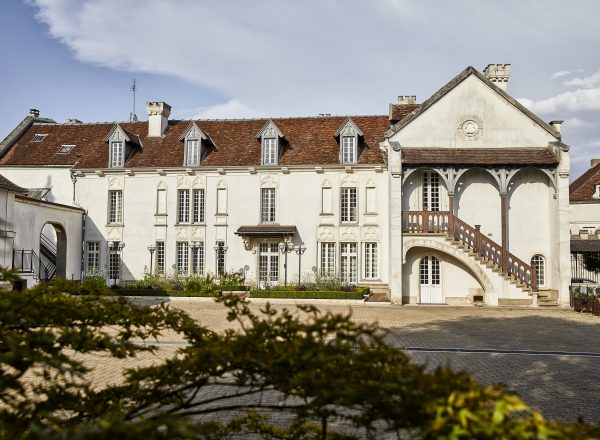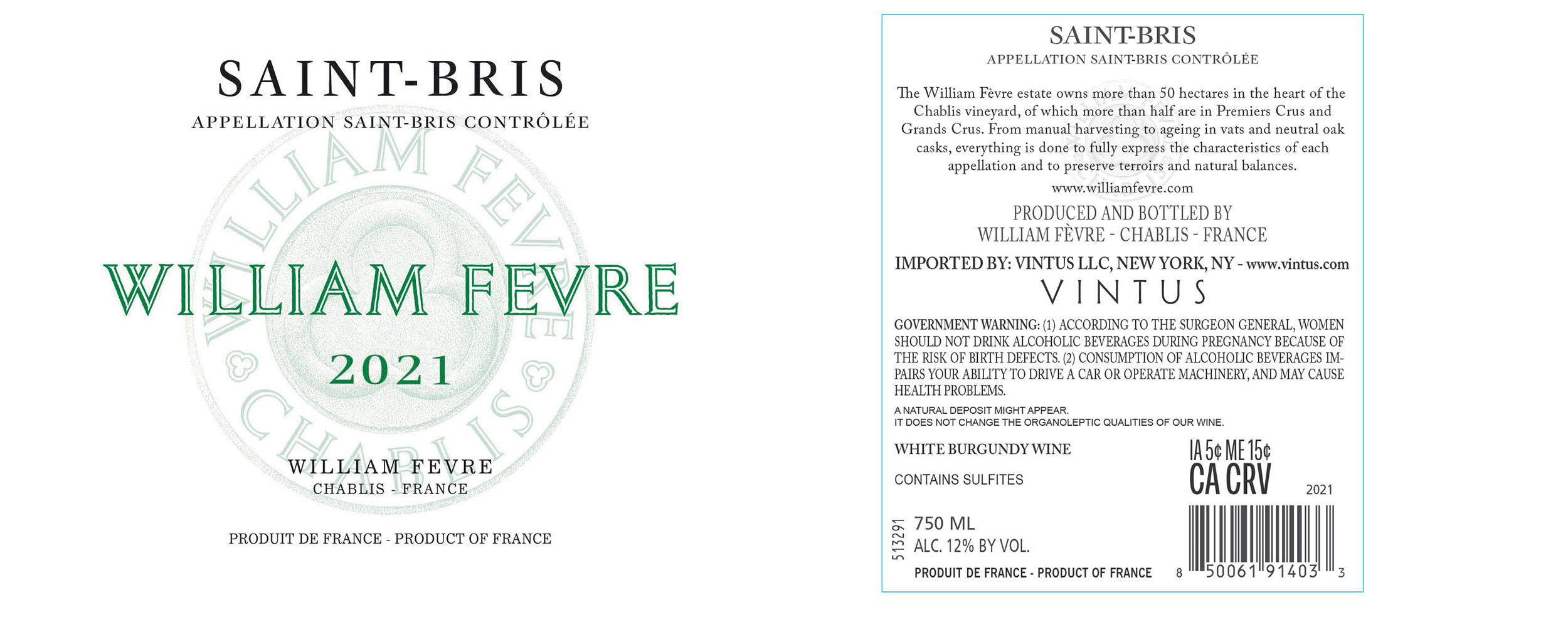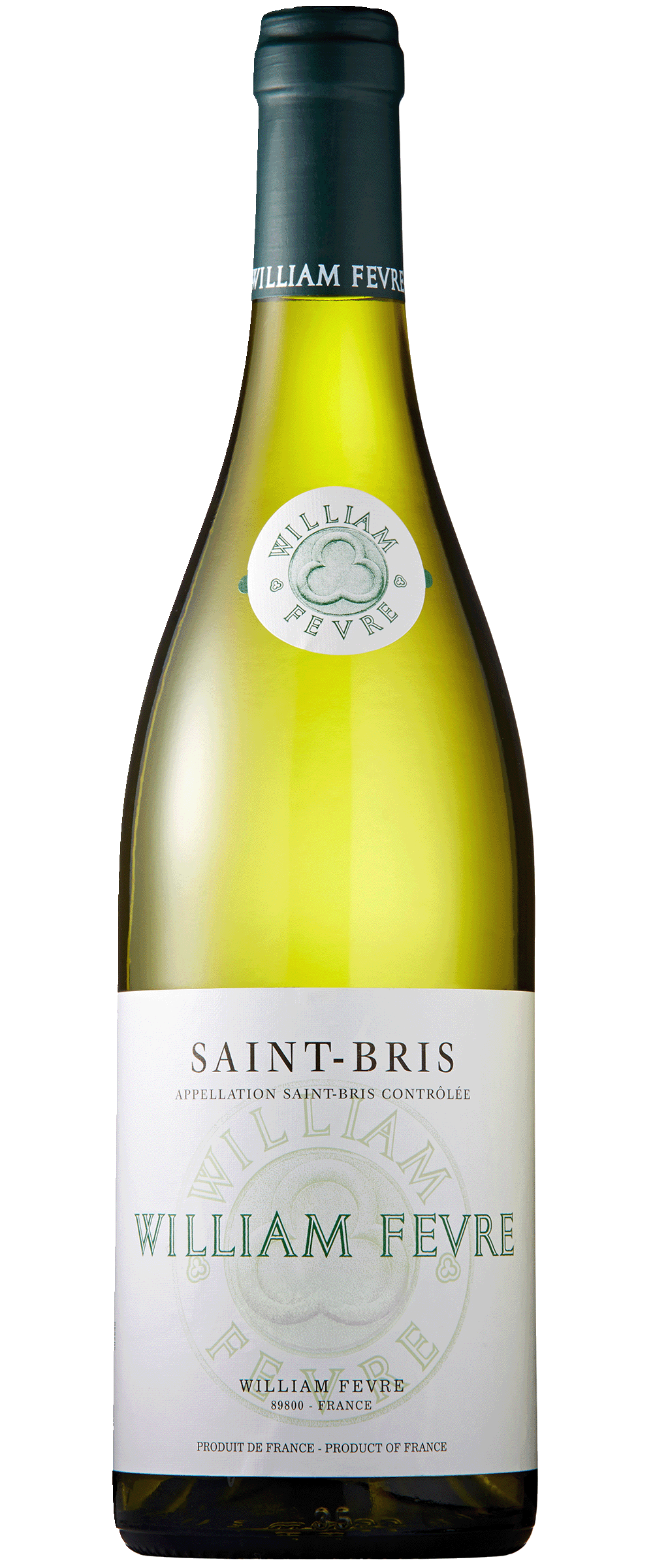
William Fèvre
Saint-Bris
Saint-Bris
Located southwest of Chablis, Saint-Bris is the only appellation in Burgundy that allows Sauvignon Blanc. This wine grows from northeast- and northwest-facing parcels with a mix of stones, hard limestone and clay-silt. A 12-hour pre-fermentation maceration adds to this wine’s freshness, a linearity solidified by its all-stainless-steel aging.
Vineyard
Winemaking
The Sauvignon Blanc is hand-harvested before undergoing a 12-hour pre-fermentation maceration for fruit extraction and varietal typicity. A brief press and gentle settling leads into a native-yeast fermentation with malolactic conversion. To preserve freshness, the wine ages for 8-10 months in stainless steel.
Tasting Note
Intensely aromatic, rife with blackcurrant and boxwood. A fresh palate with exquisite lightness.
Color
White
Blend %
100% Sauvignon Blanc
Appellation
Saint-Bris
Farming
Organic, Biodynamic
Alcohol
12.00%
Trade Materials
Other Wines by this Producer
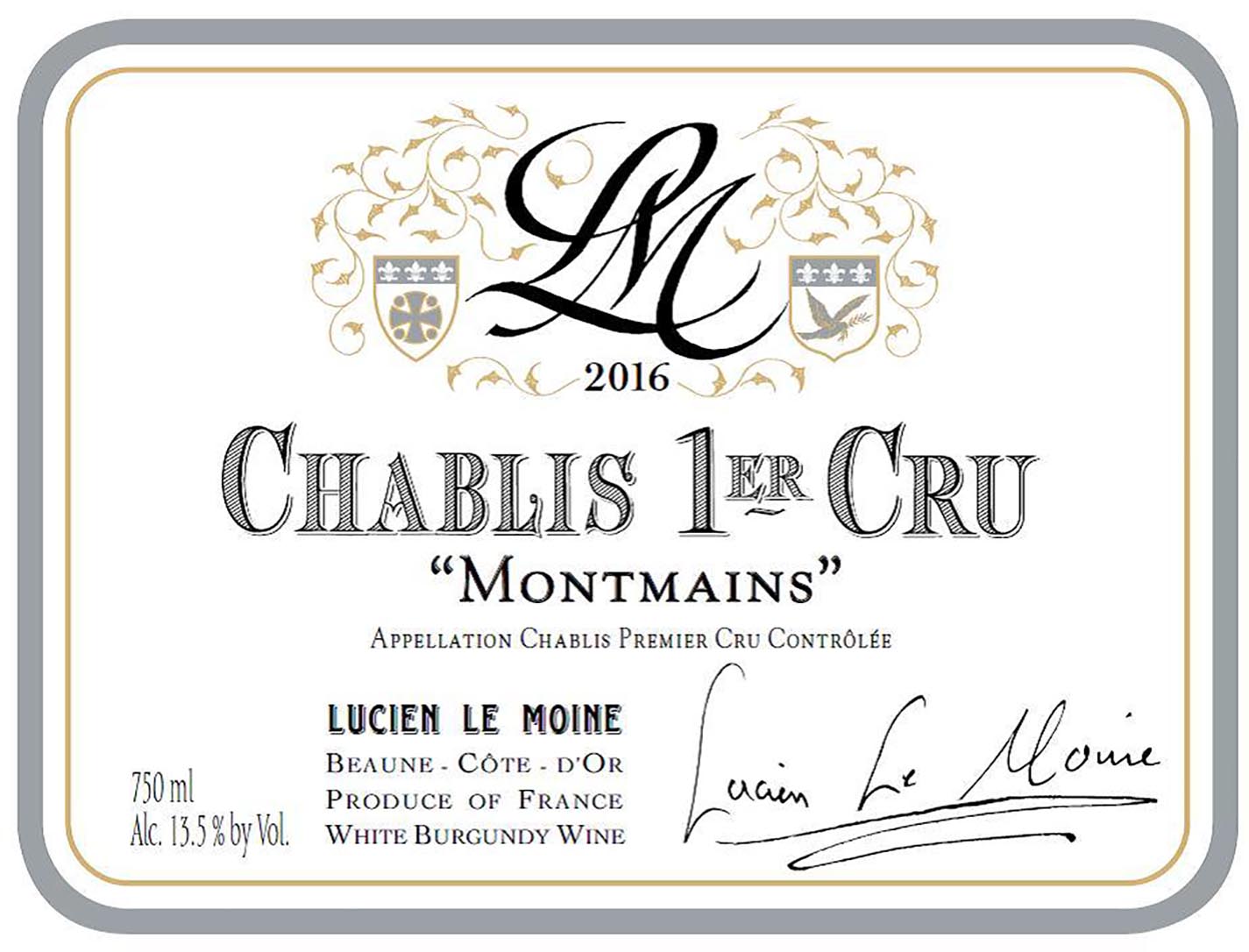
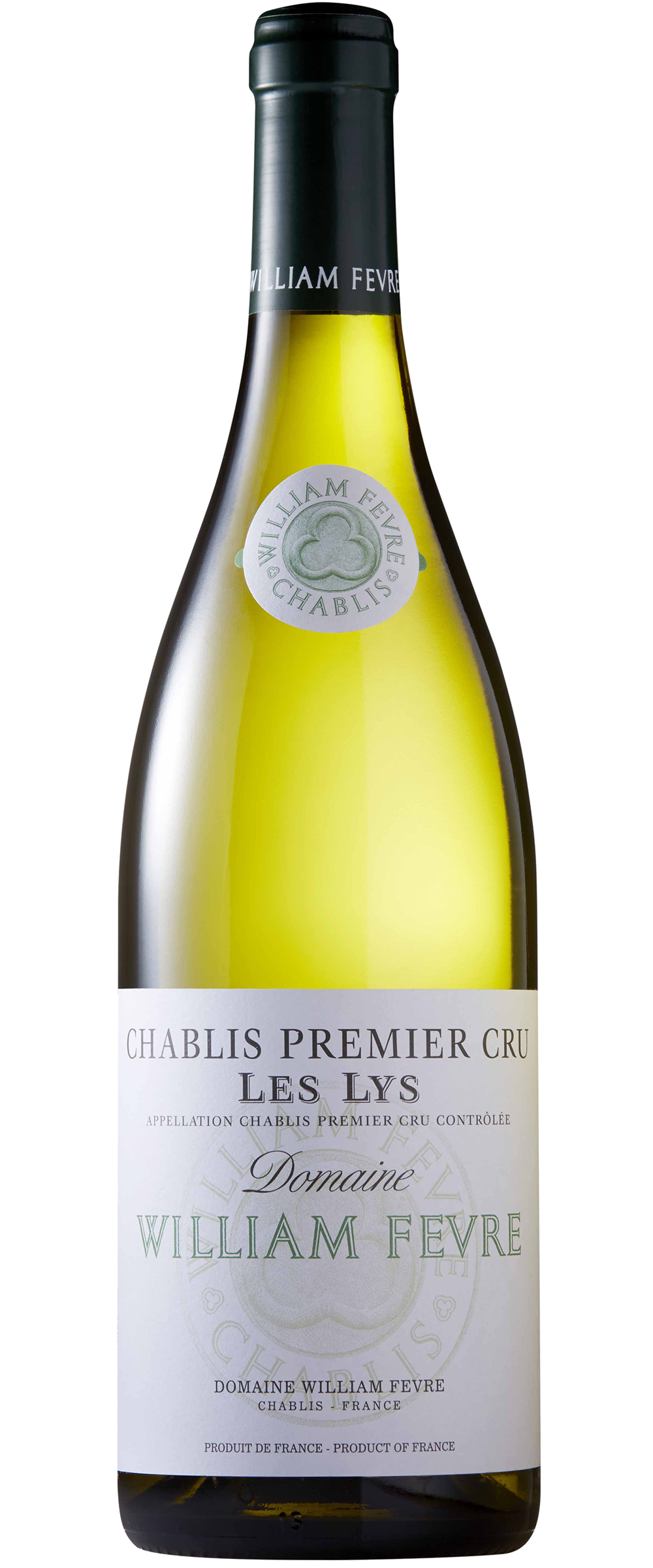
Chablis 1er Cru Les Lys - Domaine
Chablis 1er Cru
Historically owned by French royalty, the climat of Les Lys sits towards the top of the hill in Vaillons. On the left bank of the Serein, Fèvre’s 0.99 hectares of vines grow in clay over Kimmeridgian soils, its eastern exposure producing a delicate wine with a soft, charming palate.
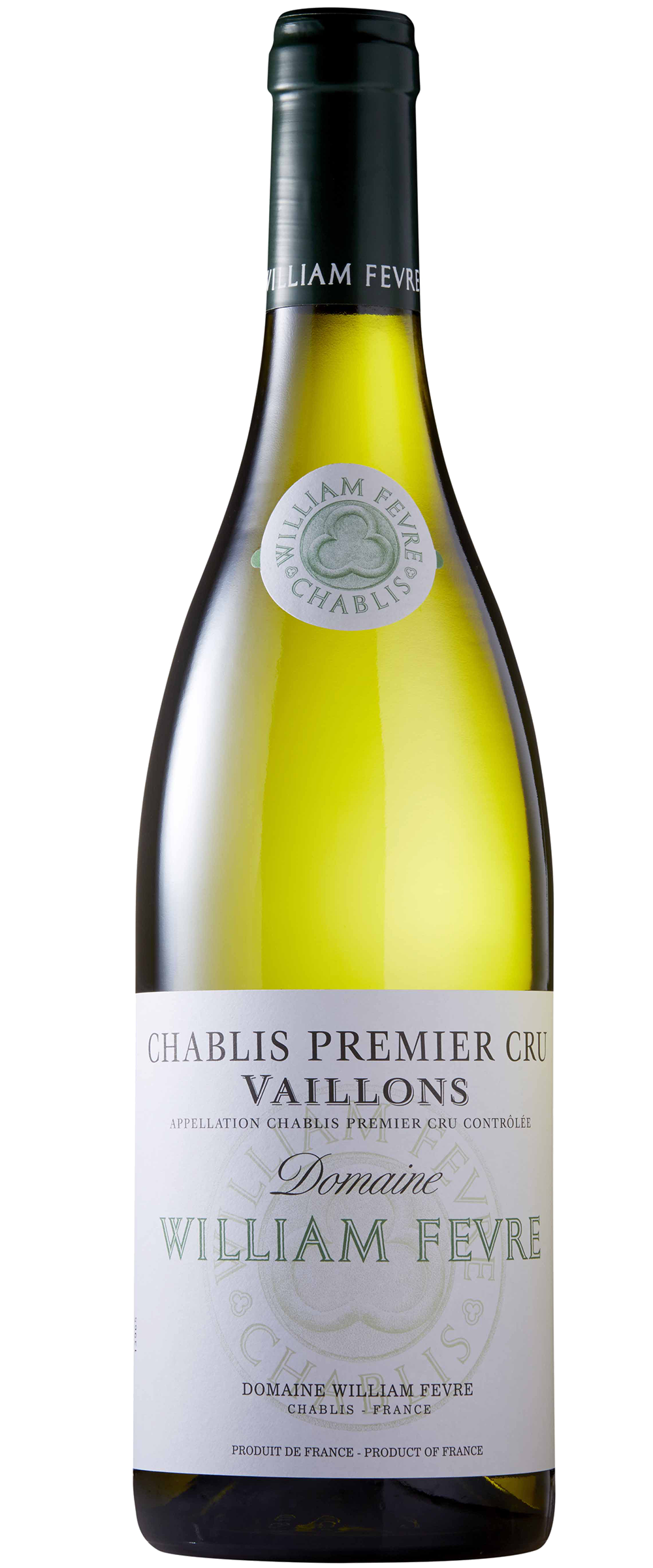
Chablis 1er Cru Vaillons - Domaine
Chablis 1er Cru
This left-bank cru spans a massive 104 hectares divided into 8 climats – Fèvre owns 3.65 hectares over 12 plots. One of the first vineyards to reach maturity, it shows its fast ripening in shades of peach, pineapple, and pear.
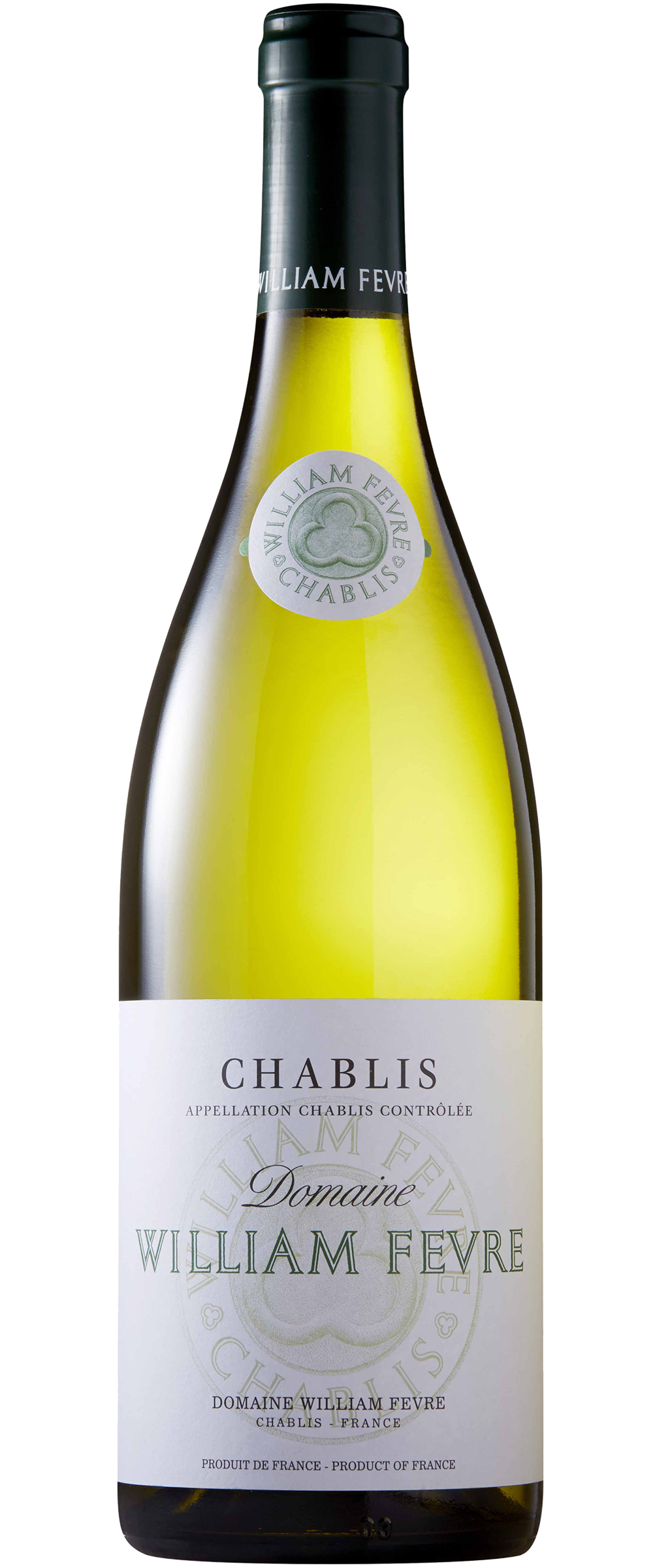
Chablis Domaine
Chablis
This wine is made from William Fèvre’s organic estate vineyards, with many of the parcels lying adjacent to Premier Cru sites. An attractive, fresh, and classically mineral Chablis.
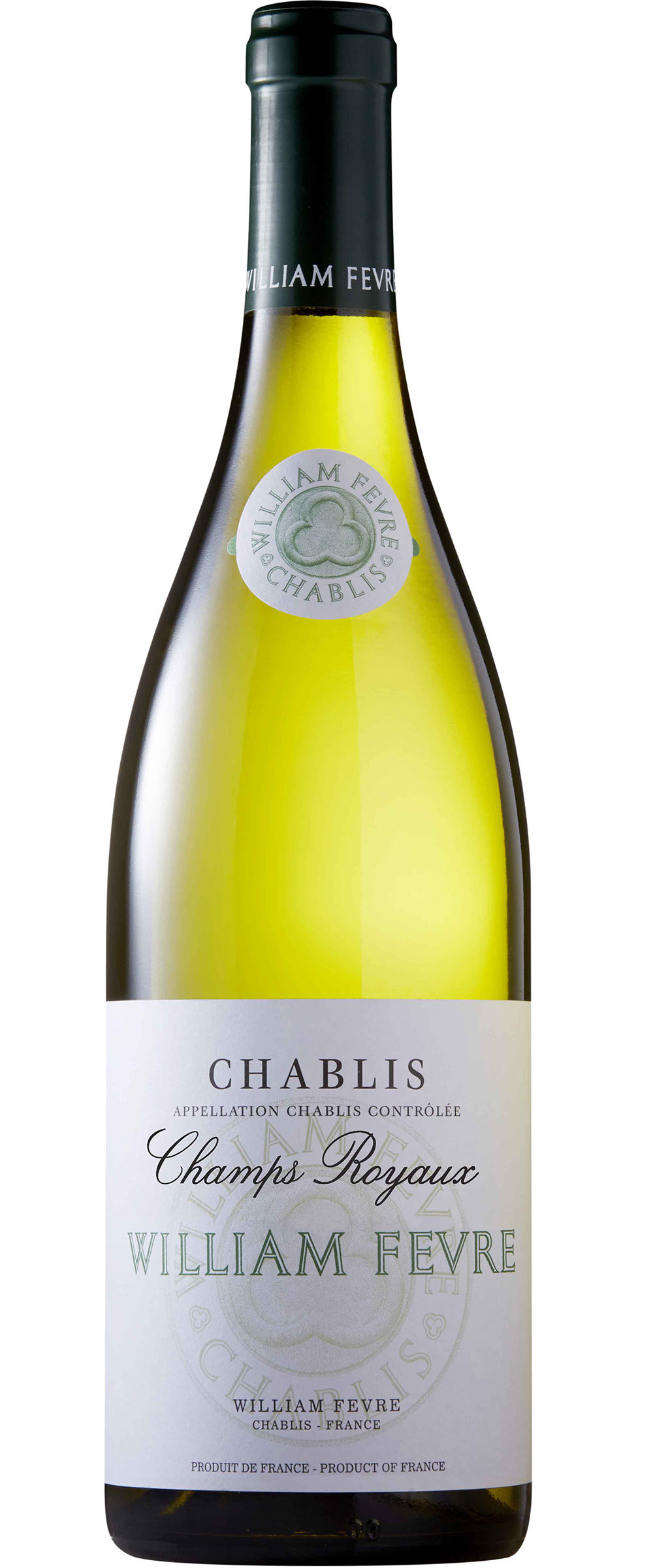
Chablis Champs Royaux
Chablis
Translates to "Royal Fields", a selection from the highest quality fruit covering 37 hectares of vineyards in the Chablis appellation.
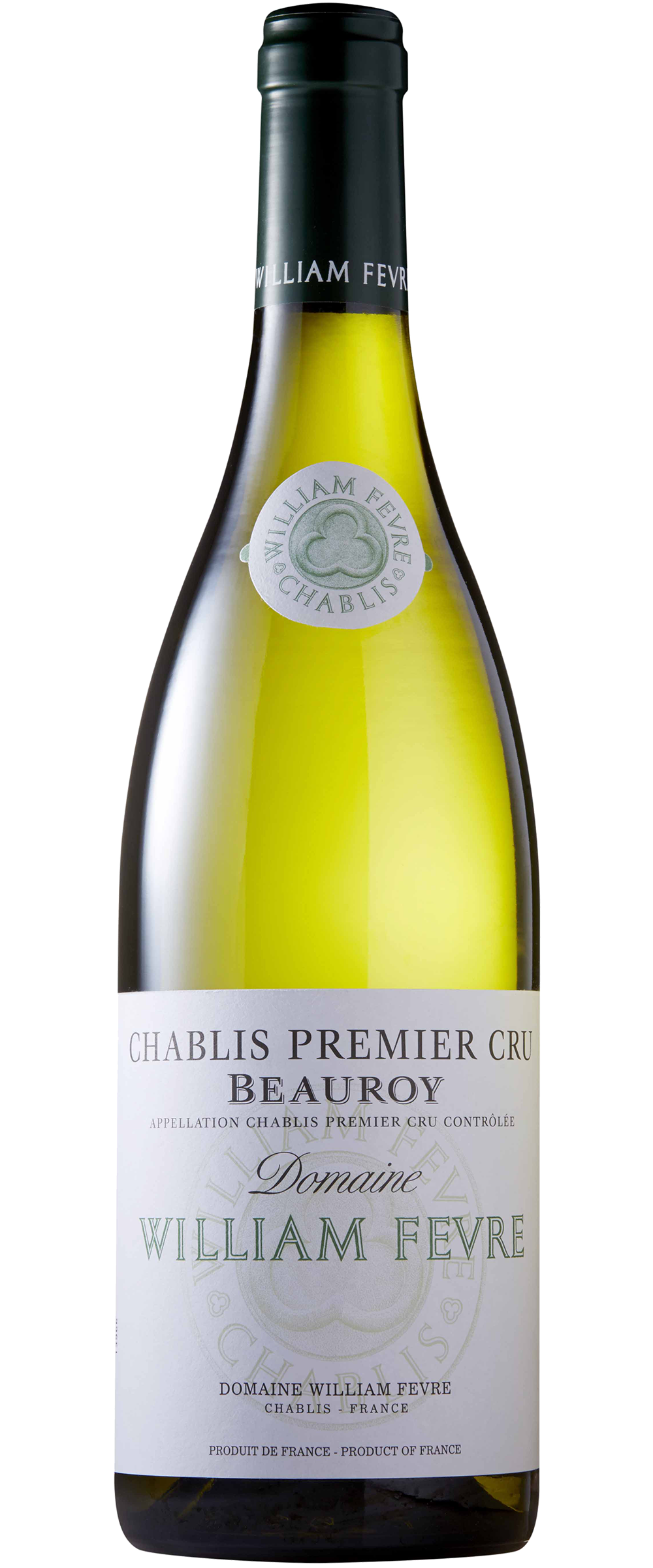
Chablis 1er Cru Beauroy - Domaine
Chablis 1er Cru
Beauroy is a cru sensitive to late frosts. So sensitive, in fact, growers created the artificial Etang de Beine at the foot of its hill both to influence its microclimate and as a water source for aspersion. Fèvre owns 1.12 hectares in the subclimat of Les Troësmes, where the steep slopes and thin clay-limestone soils give finesse and elegance to the wine while the sunny south-southeastern exposures provide a background of richness.
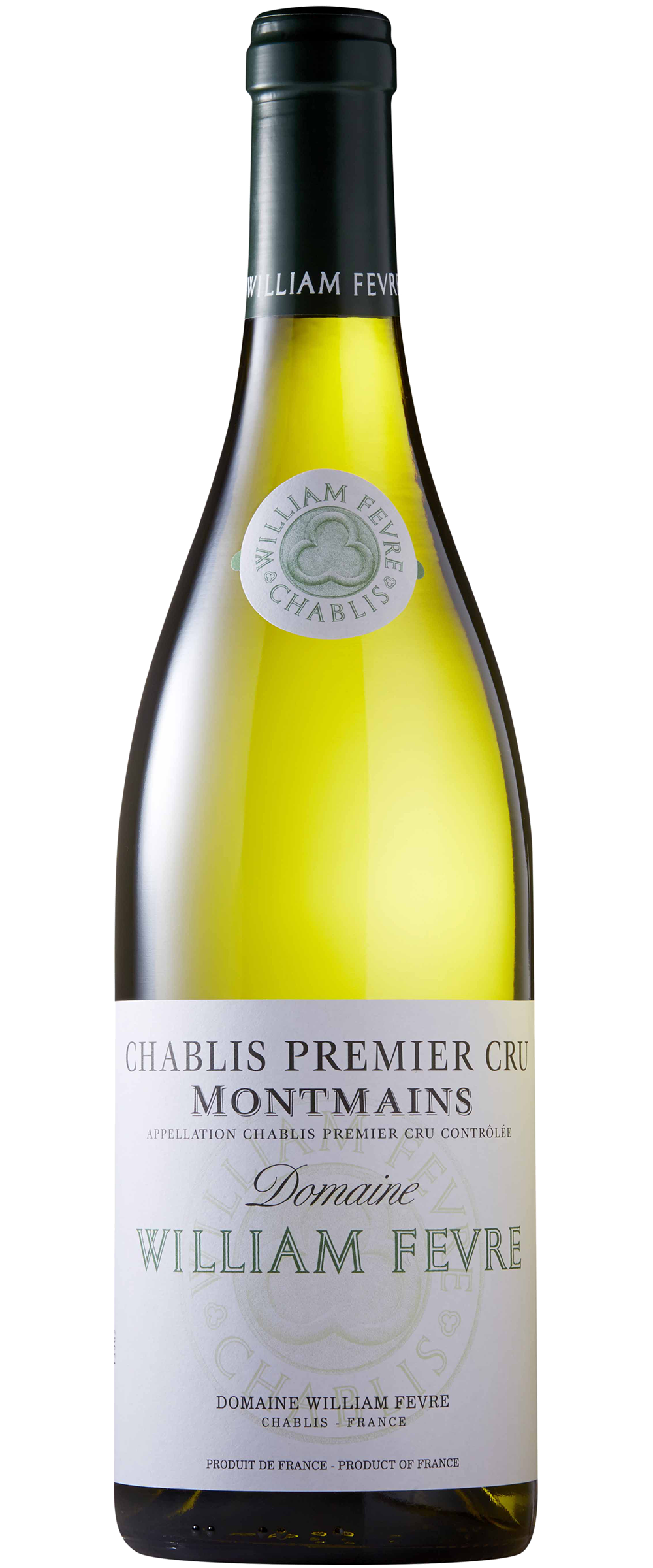
Chablis 1er Cru Montmains - Domaine
Chablis 1er Cru
On the left bank of the Serein, Fèvre owns 3.68 hectares with vines in each of the climats off this Premier Cru. The parcel in Butteaux gives minerality, Forêts – fruitiness, and Montmains – richness. The vineyard has a uniquely stony terroir that grows an accessible, fresh wine in its youth that has the power and concentration to age.
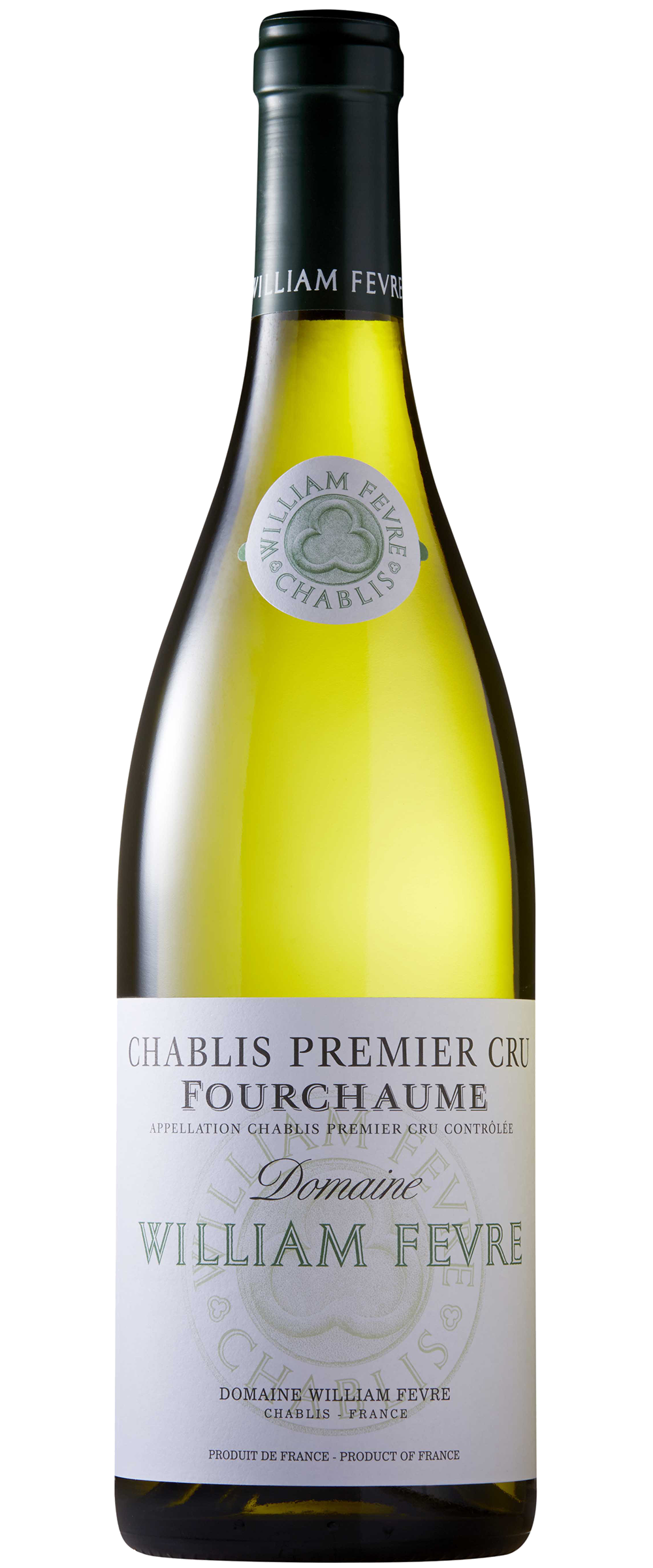
Chablis 1er Cru Fourchaume
Chablis 1er Cru
Fourchaum is situated on the opposite face of the hillside on which Grand Crus Les Preuses and Bougros sit. Fèvre’s holdings are on the eastern side of the vineyard, as close as one can get to the Grands Crus without crossing over. The soils resemble their storied neighbors and grow similarly powerful wines, perhaps with a shade more freshness.
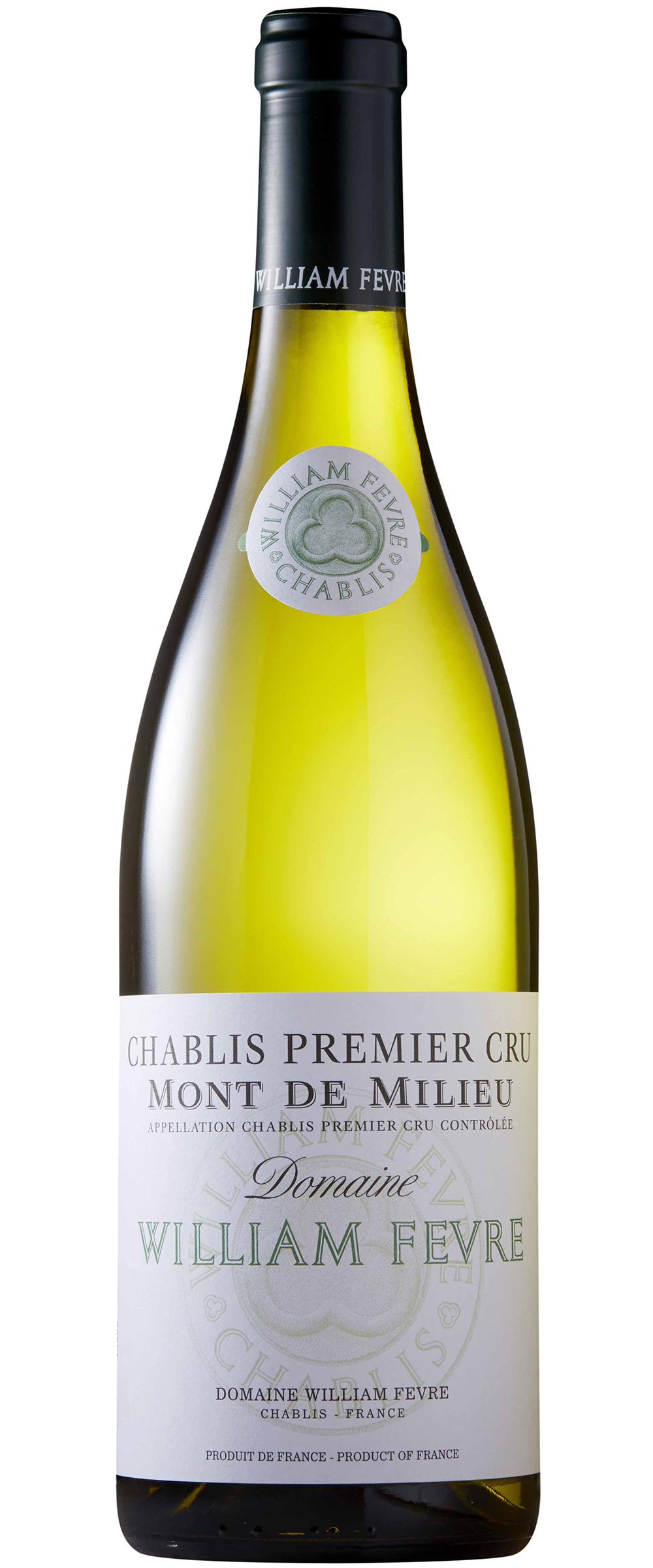
Chablis 1er Cru Mont de Milieu - Domaine
Chablis 1er Cru
This cru takes its name from the "Mont de Lieu" as it was traditionally considered the delineation between Burgundy and Champagne. Because of its double exposure to the south and the southeast, it gets more sunshine than other Premiers Crus and develops aromas of candied fruit and hazelnuts with age.
